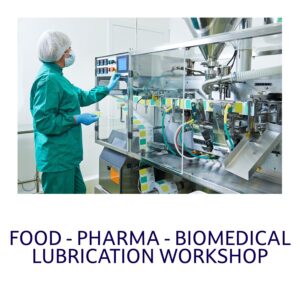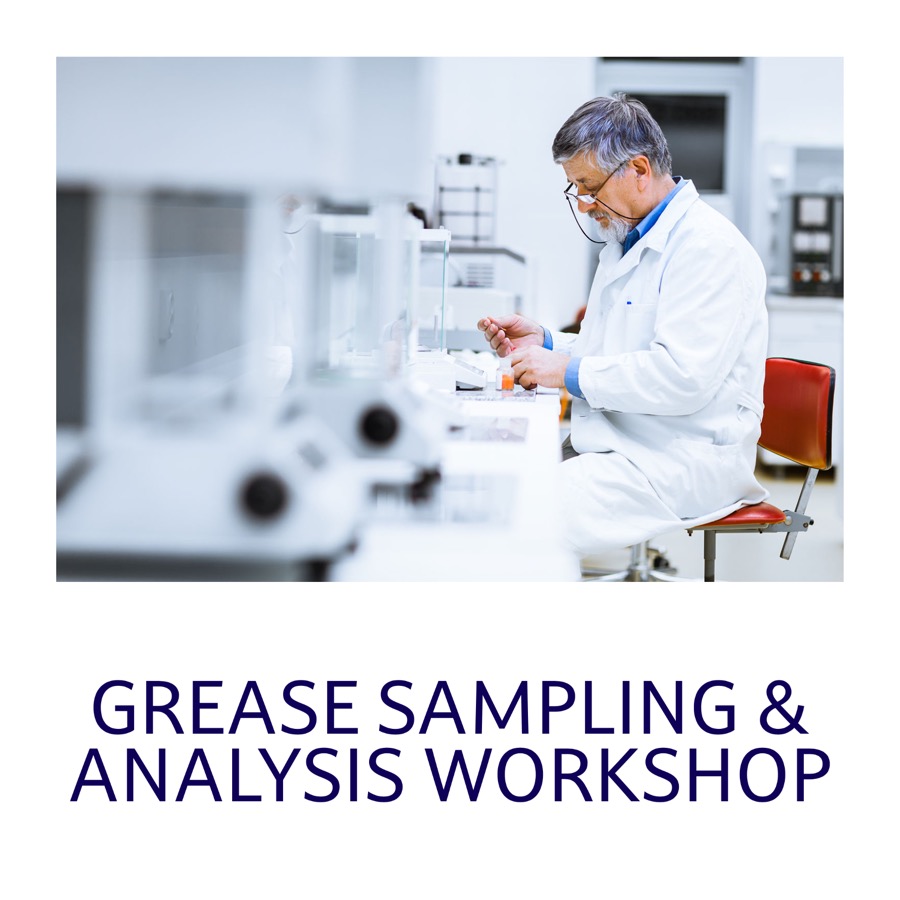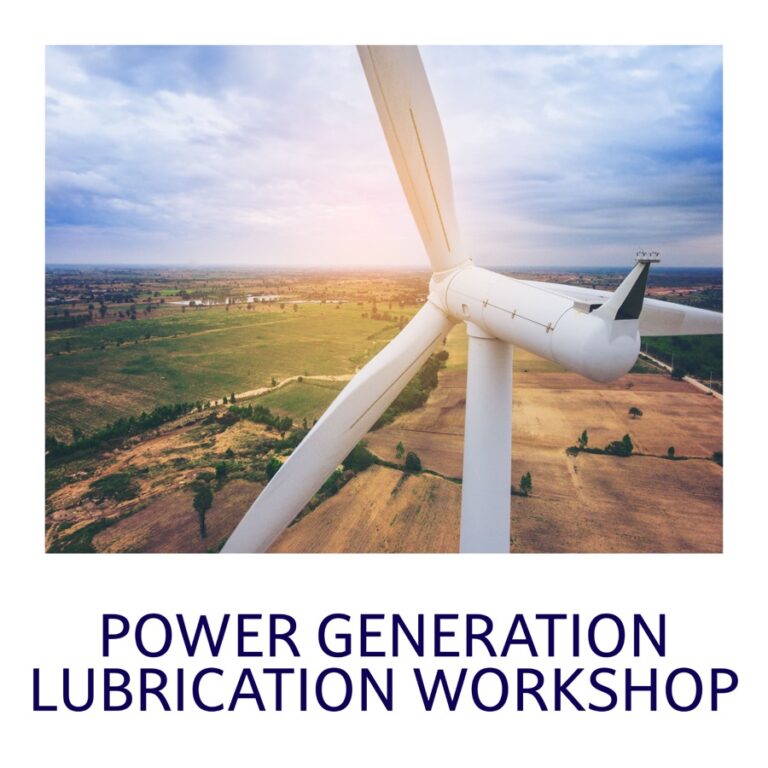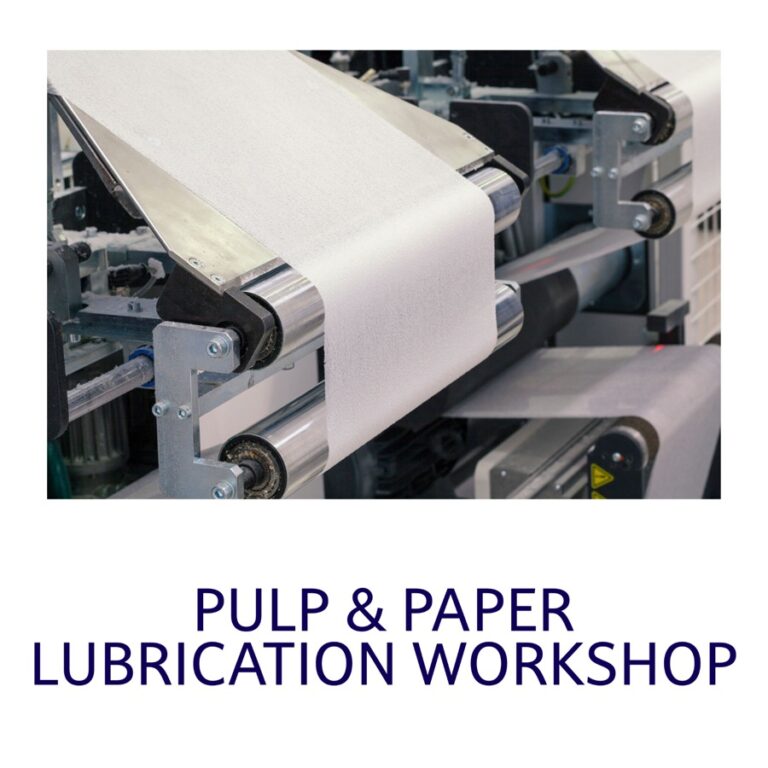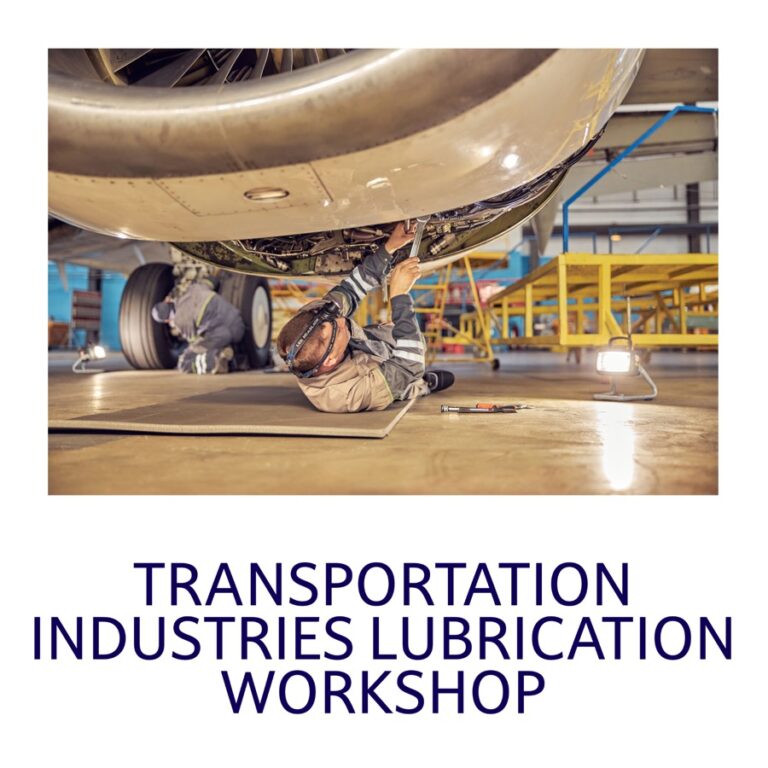
Food Processing, Packaging and Pharmaceutical production professionals will gather for a one-day workshop to tackle machinery care and reliability improvement issues through laboratory time, classroom workshops, hands-on training and preparation for the new Food Processing Lubrication (FPL) Badge Certification. The goal of these lubrication workshops will be to share and learn best practices in reliability-based lubrication and lubricant analysis techniques to deliver cost-saving solutions to the attendees and their companies, and to produce the first group of professionals earning the FPL Badge.
Some topics being covered are FDA and CGMP Lubricant Regulations, FSMA Implications for lubrication, Database Development and criteria using Navigator(TM) software and Creating a Clean-Inspect-Lube culture in food/pharma production.
This course will be available in-person at York College of PA’s JD Brown Center, or for online participation. Register for details. Time will be 08:00 – 16:00 on April 17, 2024.
WEDNet funding for this course may be available for PA residents. Follow this link for more information: https://dced.pa.gov/programs/wednetpa/
The Grease Thief Bootcamp workshops are three-day, highly focused lubrication workshops introducing the tools and techniques for in-service machinery grease sampling and analysis. In addition to live classroom time giving the background on the development of the current ASTM standards for sampling and analysis, much of the time is spent learning from the inventor of the Grease Thief, Rich Wurzbach.
Get firsthand knowledge of the sampling process, proper use of the Grease Thief sampling kits, streamlined analysis process including die extrusion, grease colorimetry and many other tests.
For those who are ordering Grease Thief analysis equipment or kits for their company or lab or are just investigating grease analysis, this workshop will arm you to implement a successful grease analysis program in a quick, efficient and effective manner. Also, get the chance to learn about the GreaseMonkey automated robotic grease testing system.
Power generation is a vital contributor to our economy. Reliable and cost-effective power can impact nearly every facet of manufacturing and daily life. Lubricants are at the focal point for the reliability of nearly every mechanical system in a power plant, including nuclear, fossil, hydro, wind and even large solar installations.
Power generation professionals will gather for a two-day workshop to tackle machinery care and reliability improvement issues through laboratory time, classroom workshops and hands-on training. The goals of these lubrication workshops will be to share and learn best practices in reliability-based lubrication, lubricant analysis techniques and cost-saving solutions.
Steel, aluminum and metalworking present unique challenges to equipment reliability and lubrication of these capital-intensive production environments. Gearboxes, roller-bearings, wire drawing dies, machining centers, hydraulic reservoirs and electric motors are all operated in an environment that frequently includes very high temperatures, corrosive chemicals and the accumulation of dirt and once molten debris in oils and greases. When an experienced and capable workforce is armed with the knowledge of lubrication best practices, including filtration, lubricant sampling and analysis and condition-based lubrication replenishment, life extension of critical components and reduction in O&M costs can be substantial.
Metals professionals will gather for a two-day workshop to tackle machinery care and reliability improvement issues through laboratory time, classroom workshops and hands-on training. The goal of this workshop will be to share and learn best practices in reliability-based lubrication and lubricant analysis techniques, with the goal of delivering cost-saving solutions to the attendees and their companies.
The pulp and paper manufacturing process creates substantial challenges to machine reliability and durability. High quality machine lubrication practices are an essential element required for protection of paper machines, mechanical and electrical drives, and hydraulics systems.
Pulp and paper professionals will gather for a two-day workshop to tackle machinery care and reliability improvement issues through laboratory time, classroom workshops and hands-on training.
The goals of this workshop will be to share and learn best practices in reliability-based lubrication, lubricant analysis techniques and cost-saving solutions.
Cement manufacturing and mining operation are some of the most challenging environments for lubrication and long equipment life. The constant presence of abrasive contaminants, high temperatures and shock loads conspire to diminish the time between failures and impact the ability to recover the valuable investment made in capital equipment. Lubricants are the lifeblood for these components.
Mining professionals will gather for a two-day workshop to tackle machinery care and reliability improvement issues through laboratory time, classroom workshops and hands-on training.
The goal of this workshop will be to share and learn the best practices in reliability-based lubrication and lubricant analysis techniques, with the objective of delivering cost-saving solutions to the attendees and their companies. The class includes hands-on activities, networking and a tour of a local facility to reinforce the class experience.
Transportation is driven by machines that propel people and goods to the destinations they need to reach, and they do it while being protected by a thin film of lubricant. These applications present unique challenges to equipment reliability and lubrication in these capital-intensive operations while moving through challenging environments.
Transportation professionals will gather for a two-day workshop to tackle machinery care and reliability improvement issues through laboratory time, classroom workshops, hands-on training and a lubrication-focused tour of a local transportation facility.
The goal of this workshop will be to share and learn best practices in reliability-based lubrication and lubricant analysis techniques to deliver cost-saving solutions to the attendees and their companies.

